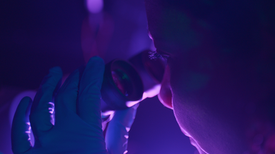A new video series from Scientific American and Spektrum der Wissenschaft gives you a serving of science. In this episode, we take a look at the effervescent fermented tea that has become a health craze.
See the German-language version of this piece at Spektrum der Wissenschaft.
You have probably seen it in supermarkets, health stores and even restaurants: Kombucha. This effervescent fermented tea is sometimes called an “elixir of life” by those who extoll its supposed health benefits. But what is it, and how is it made? And where might these health benefits come from?
The key to the creation of kombucha is fermentation.
It is the process of using microorganisms - specifically yeast and bacteria - to convert carbohydrates to alcohol or organic acids.
People have always used fermentation to preserve fish, meat and vegetables. Some of the procedures originally used in Asia have become a global culinary trend since the turn of the millennium.
The beverage is created through the action of a symbiotic culture of bacteria and yeast, or SCOBY. It produces the drink through fermentation.
Usually, this is done by letting the SCOBY loose in a fermentation vessel containing an infused sugared tea.
Once the SCOBY is added to the tea, it forms a loose floating mat to get as much contact with the nutrient medium as possible. The mixture is left exposed to the air, and a complex chemical dance begins.
Acetic acid bacteria, such as Gluconacetobacter and Acetobacter, and lactic acid bacteria, such as Lactobacillus, work with several yeast populations.
Together they inhibit the growth of potential contaminating bacteria. Over a period of about seven to 10 days, they convert sugar and tea to a lightly carbonated, slightly sour drink composed of several acids, including amino acids, vitamins and enzymes.
Several studies have shown that Kombucha has antimicrobial, anti-inflammatory, antioxidant and even anticarcinogenic properties, at least in a petri dish.
There are various rumors circulating about how kombucha is supposed to be good for people:
It is said to help prevent high blood pressure.
Drinking it is supposed to make you feel more energetic.
Some believe it strengthens the immune system, lowers bad cholesterol and reduces the risk of heart attacks.
But this has yet to be scientifically proved. Further studies of the health effects on humans under controlled research are merited. Some studies have even reported cases of toxicity related to kombucha consumption.
That’s why kombucha is not classified as a drug: it’s a refreshing drink with a lot of health hype.
To guarantee that kombucha is safe to consume, industry standards are needed for the brewing process.
In the U.S., Kombucha Brewers International has established best-practice guidelines to guarantee the safety and quality of these products.
In Europe, such an organization does not yet exist.
In any case, correctly produced kombucha is a harmless and refreshing drink.
But watch out: Some kombucha brews can contain between 0.1 and 2 percent alcohol.
Unless you’re looking for a kombucha buzz, be sure to avoid drinking it by the pitcherful. And that’s your serving of science.








